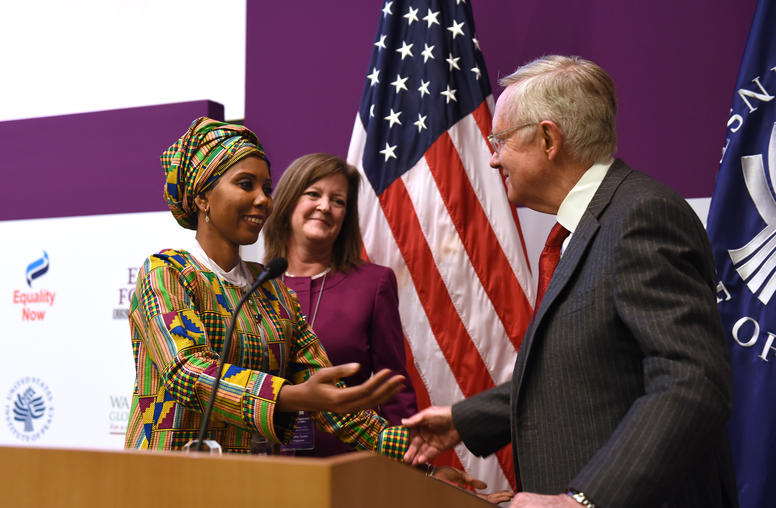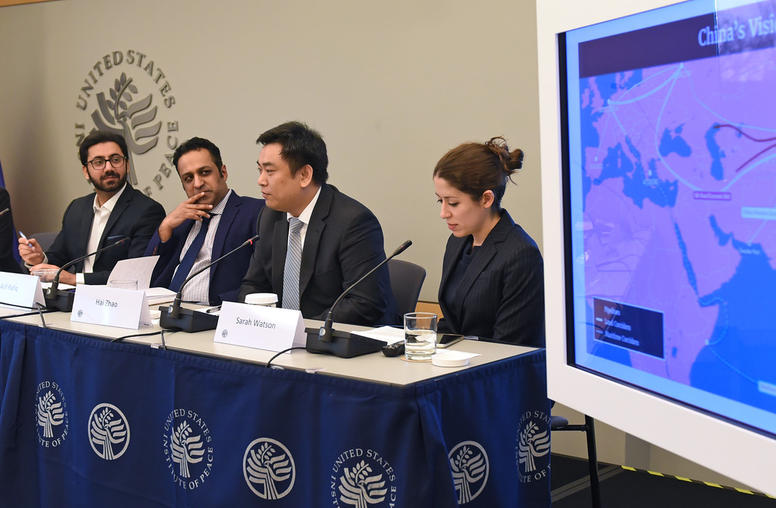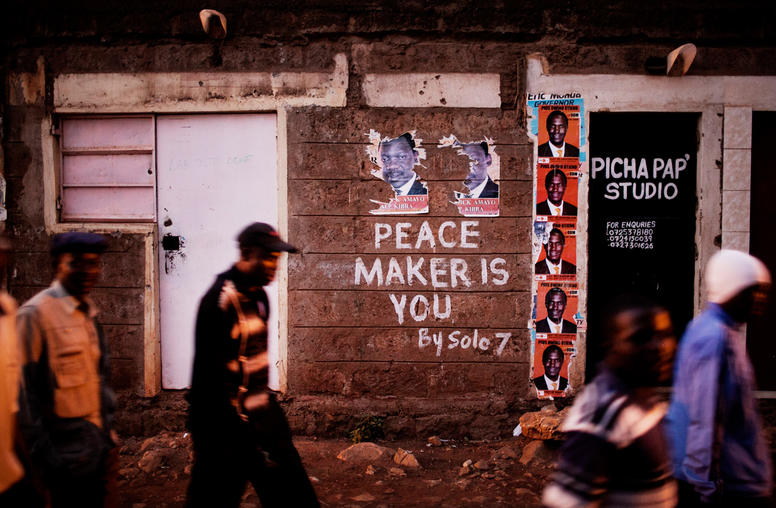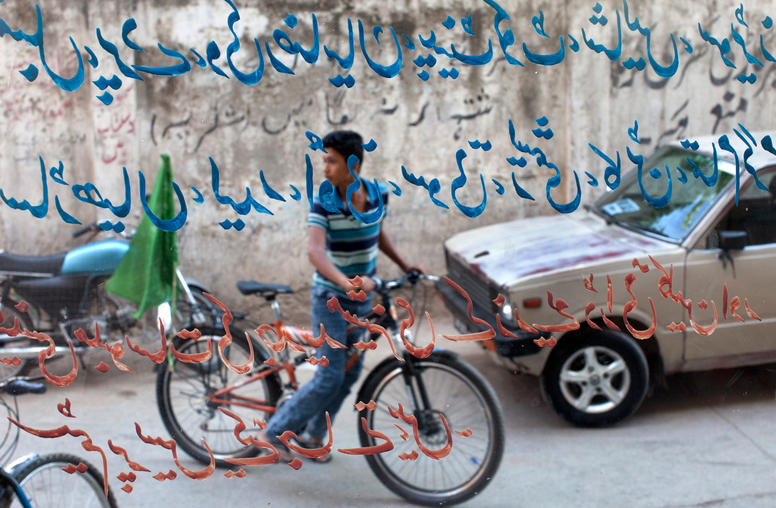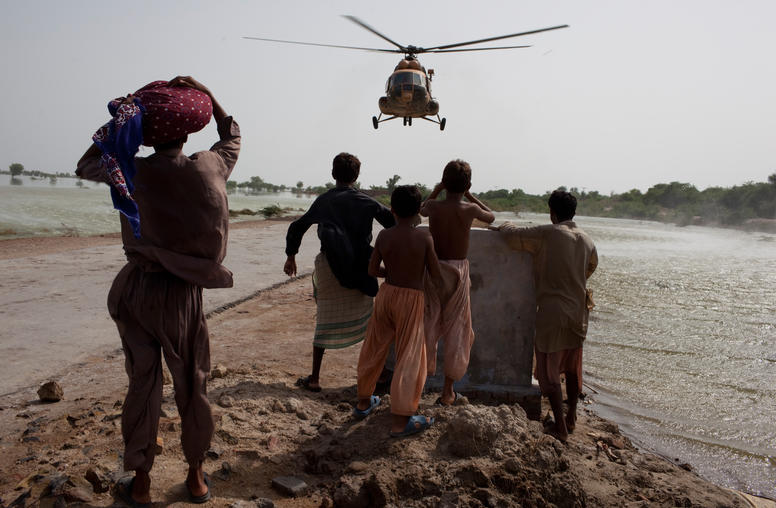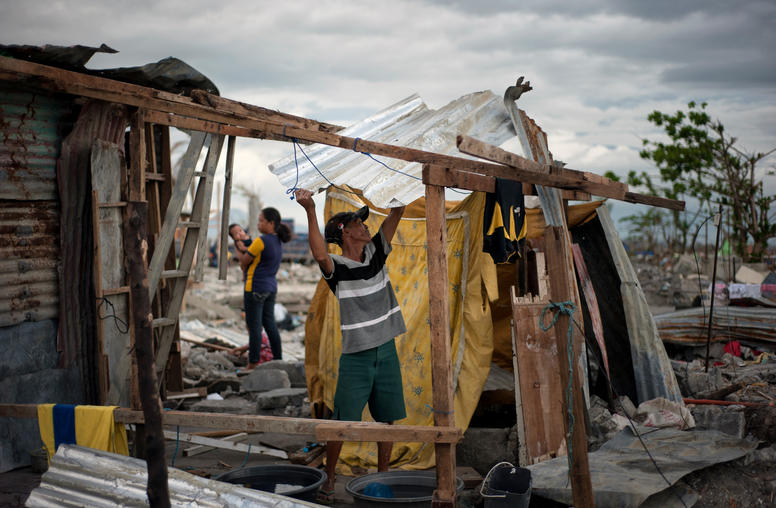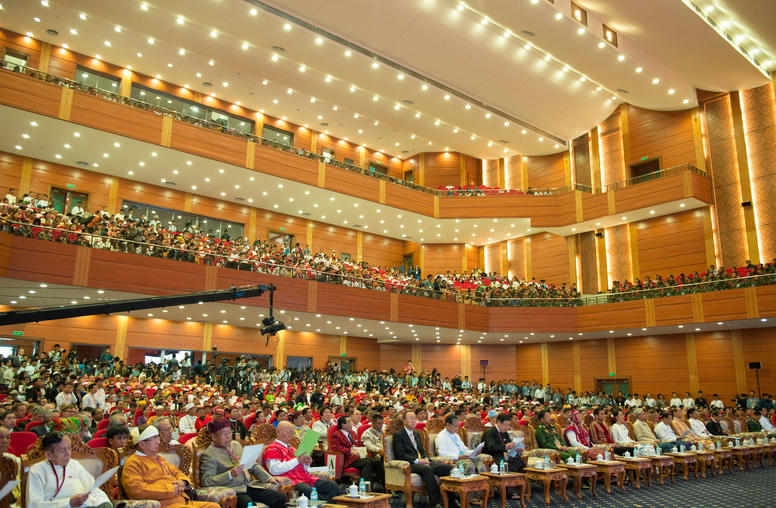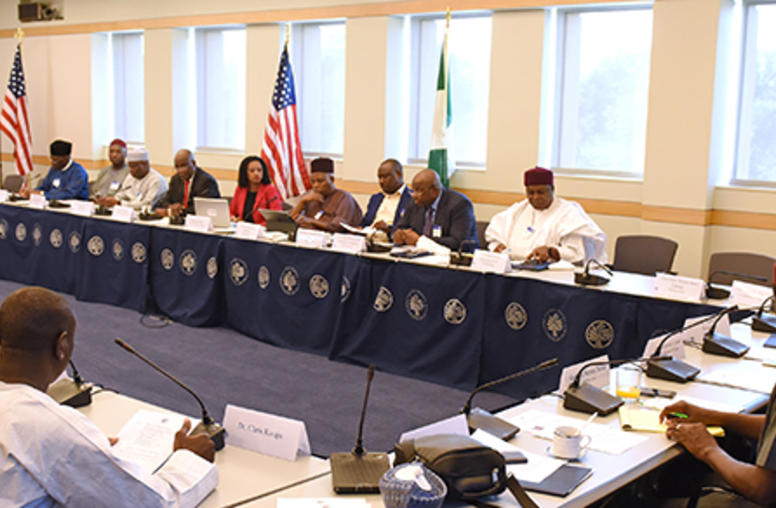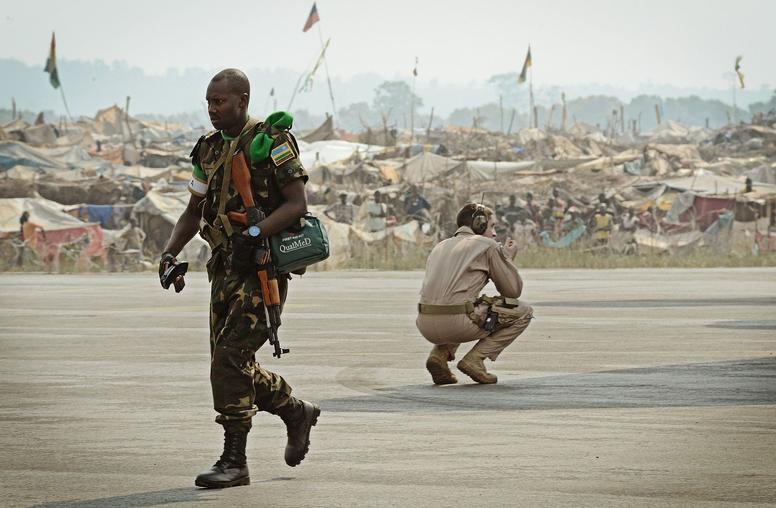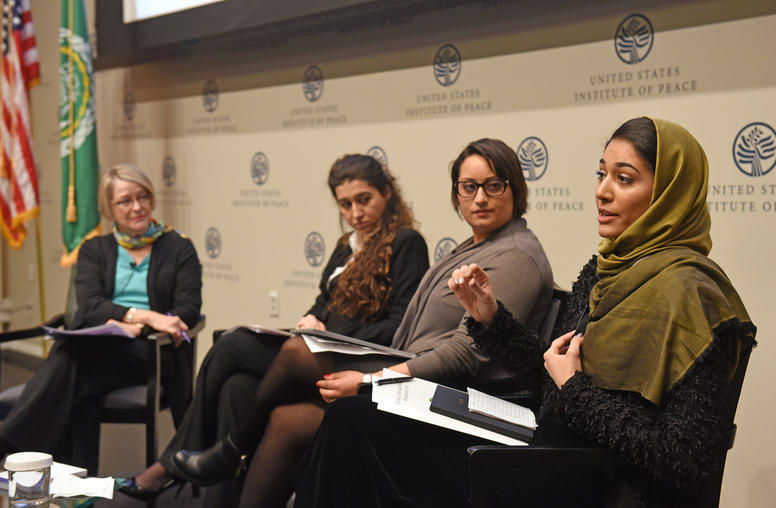
The Arab Woman: Enhancing Leadership & Resilience
On December 5, to mark the Fifth Annual Arab-American Day, the League of Arab States and the U.S. Institute of Peace hosted a discussion with Arab women leaders, academics and policymakers, including the newly-elected Minnesota House Representative and Somali American, Ilhan Omar, on how education and economic opportunities can engage women and men in supporting women’s voices, equality and success.
